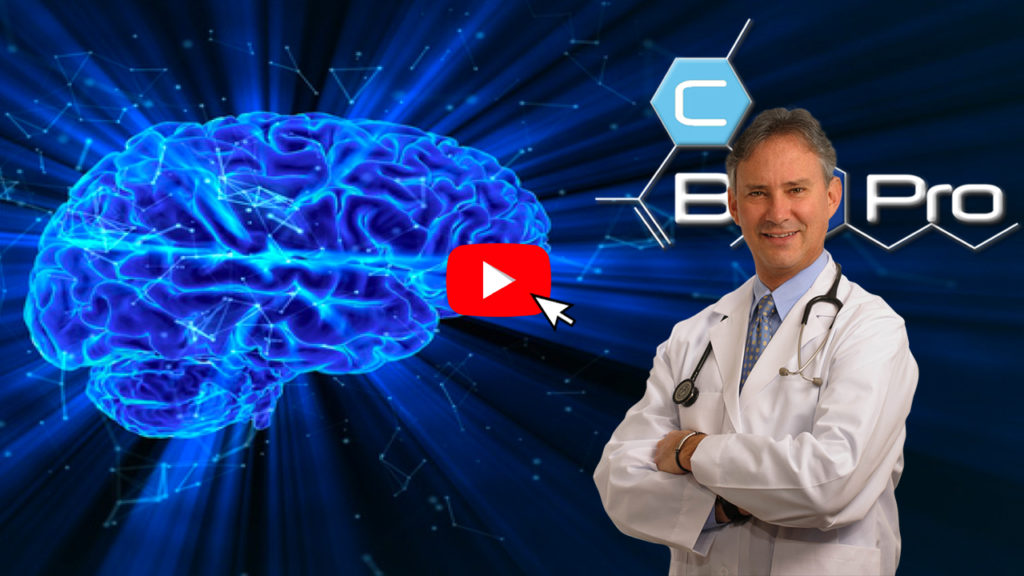cbd and the brain
By Dr. Barry Morrison
There are a lot of experts out there who claim CBD is non-psychoactive and has no effect upon the brain. Well, I’m not only going to tell you, but I’m going to show you why these two statements are false. It’s time you learn the truth!
Hey everyone, I’m Dr. Barry and I’m here to set the record straight with regards to CBD’s effect on the brain. So, let’s take a look at some of the most recent research to shed some light on the mechanism for how CBD affects the brain. The principal cannabinoid receptors discovered within the brain are known as the CB1 receptor. This major discovery gives further insight into CBD’s potential effect upon many conditions. Such as epilepsy, depression, as well as other neurological disorders.
Psychoactive Effects
I’ll also be explaining the different psychoactive effects produced by the two most studied cannabinoids. Now, if you’re like most people, you’ll recognize them as THC and CBD, properly termed tetrahydrocannabinol and cannabidiol. Compared with THC, CBD shows a more defined anticonvulsant profile and is largely devoid of adverse intoxicating or psychotropic effects. However, THC plays a major role in the entourage effect when combined in trace amounts with the other cannabinoids. These cannabinoids are all be found naturally in the hemp variety of cannabis.
The interest in cannabis-based products for the treatment of difficult to treat epilepsy has skyrocketed in recent years. CBD has a proven ability to treat this difficult condition in both children as well as adults. However, let’s not lump CBD into just one category as it possesses many different therapeutic applications.
CBD as an Antidote
There are resources that offer medicinal cannabis products with varying ratios of CBD and THC. CBD not only has a therapeutic effect on the body, but counteracts some of psychological effects caused by THC. This new discovery shows how CBD acts as an antidote for the potentially undesirable psychological effects of high therapeutic doses of THC.

CBD’s Effect Upon the CB1 Receptor
Initial theory pointed to the fact that CBD does not affect the cannabinoid receptors of the brain. The latest research out of Canada shows that CBD is a negative allosteric modulator of the cannabinoid receptor 1 (CB1). This is the same receptor found within the central nervous system (CNS) that is responsible for THC’s intoxicating or psychotropic high. Therefore, CBD is able to bind to the CB1 receptor, contrary to previous scientific thought, at a different location than where THC does.
When THC binds to a CB1 receptor on the outside of a neuron, the receptor relays certain instructional signals to the inside of the cell. If CBD binds to the CB1 receptor at the same time THC is present, the neuron receives a diminished or dampened signal. The two substances in combination act synergistically at the CB1 receptor creating an obvious effect that is distinct from that of THC alone.
Scientific Suspicion
Scientists already suspected that CBD must act in some way on the CB1 receptor which infringes on THC’s action at the same CB1 receptor. In addition to its interaction with the CB1 receptor, CBD’s other medicinal effects stem from completely separate pathways. CBD has an affinity to the cannabinoid receptor 2, acting upon the mu- and delta- opioid receptors. Taken on its own, CBD has sedative, anxiolytic and anti-depressant effects on the brain, but does not create the overly psychotropic high that THC will alone.
This new discovery represents another important step forward into understanding the effects of both CBD and THC on the brain. Further research like this will aid doctors and caregivers in choosing the best protocol for patients with different needs.
Conclusion
So, contrary to popular and previous scientific beliefs, these studies have shown that CBD does have an effect upon the CNS’s CB1 receptor. This simply opens the door for further investigation into the many potential effects CBD truly has upon the brain as well as the rest of the nervous system.

